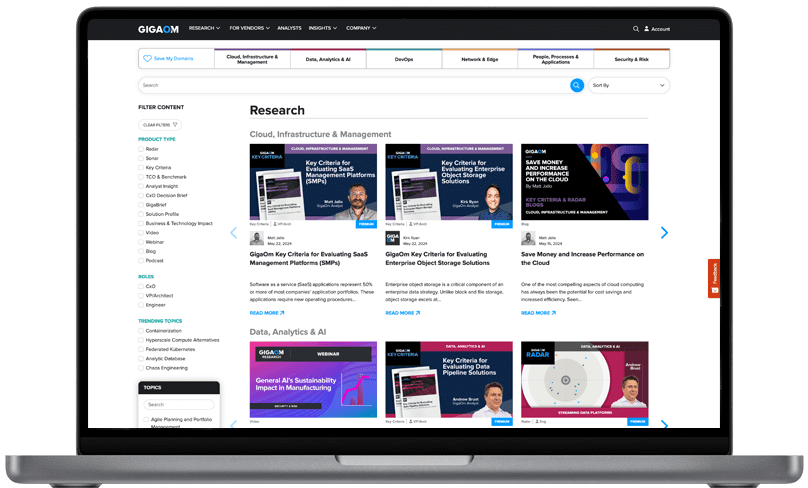Table of Contents
- Summary
- Evolution of Enterprise Container Platforms
- The Big Picture of an Enterprise Container Platform
- Market Landscape
- Enterprise Considerations for Adopting Container Platforms
- Key Players
- Outlook & Key Takeaways
- About Janakiram MSV
- Methodology
- About GigaOm
- Copyright
1. Summary
The rise of containers and microservices has led to a new breed of workloads called cloud native applications. These “born in the cloud” applications take advantage of the inherent capabilities of cloud infrastructure such as elasticity, programmability, resiliency, and availability.
Cloud-native applications often involve container-based environments. Cloud-native technologies are used to develop applications built with services packaged in containers, deployed as microservices, and managed on elastic infrastructure through agile DevOps processes and continuous delivery workflows. The cloud native technology stack is classified into core infrastructure, operations, and management tools. The foundation for core infrastructure is based on container runtime, orchestration engine, cloud native storage, and networking layers. The operations and management tools enable developers and operators to manage the lifecycle of cloud native apps. Container platforms deliver essential building blocks such as logging and monitoring, security, integration, and deployment tools along with development environments.
Enterprises embracing microservices need a robust management and orchestration platform. Similar to Cloud Management Platforms (CMP) such as OpenStack, VMware vCenter, and Microsoft System Center; container management platforms are responsible for provisioning and orchestrating containers. This new category of software, known as Enterprise container platform, delivers the required scale and maturity to manage containerized workloads in production environments. Enterprise container platforms take container management to the next level by delivering end-to-end management capabilities.
This report introduces the importance of enterprise container platforms for building and running modern applications. It also evaluates significant players in the category. The objective of this report is to enable enterprise decision makers in selecting the right technology partner for their container platform requirements.
The scope of the report does not include hosted container platforms that are exclusively managed by cloud vendors. The key criterion for including a vendor is the ability to deploy the software platform turnkey in both enterprise datacenters and at least one public cloud IaaS platforms.
